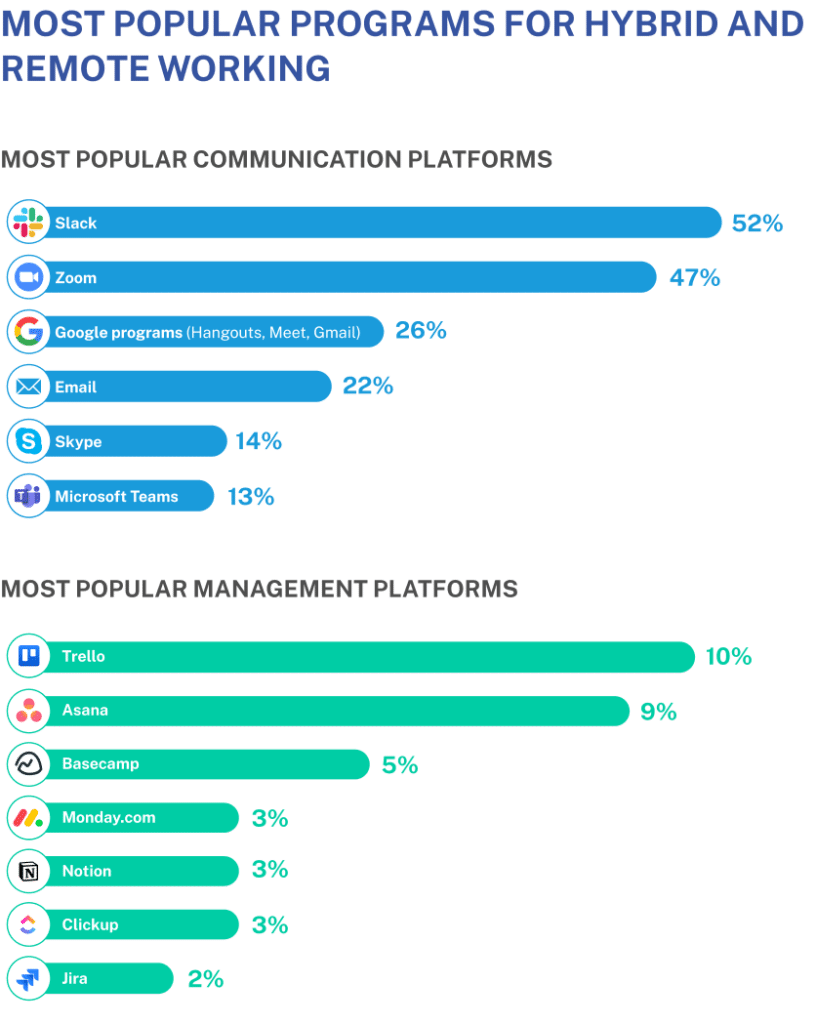One Brand, Many Audiences: Higher Ed Brand Stewardship Across Diverse Divisions
Learn how Moody Bible Institute unifies its mission and brand across divisions with practical strategies for stronger higher ed brand stewardship.
Blog
Since the great workflow disruptor that was COVID, our perception of team communication has gone through a grand metamorphosis.
As organizations continue to juggle remote and hybrid working models, effective team communication is at the forefront of many talking points. And if it’s not, it should be.
That’s because 86 percent of teams and leaders credit poor communication as a primary cause of project failures.
Higher education marketing is certainly not immune to the potential backlash from breakdowns in team communication, be it internally or with adjacent teams.
Poor team communication can result from a multitude of reasons, but addressing a few basic organizational issues can work wonders for your comm flow.
Here are seven simple steps to improve your marketing team’s communication!
Open and transparent communication is essential for building trust in every relationship.
Your team members should never feel anxious about approaching leadership with ideas or concerns.
Whether real or imaginary, communication barriers will pop up if the marketing team leader or CMO does not set expectations for voicing opinions up the chain.
Officially implement an open-door policy to give everyone on the team peace of mind. This policy encourages team members to bring any issues to senior-level personnel without fear of retaliation, implied or otherwise.
But remember, as a leader, you must actively listen to anyone approaching you with a problem. Apathy can be just as damaging to a team as inaccessibility.
Did you know that professional leaders account for a 70 percent variance in employee engagement?
It’s natural to take a universal approach to leadership, but your team isn’t full of robots. Rather, it’s a melting pot of personalities, and each one will likely respond differently to particular leadership styles.
While your experience and strengths may align with one style, certain situations may require you to adopt a different one, albeit temporarily.
If you approach your team with a style that isn’t conducive to their needs, it could adversely affect collaboration.
For example, servant leaders will quickly gain the respect of their teams by working with them on the front lines. However, this could result in other directorial duties falling through the cracks.
Other leadership styles include:
Consider taking a leadership personality test like this to see where you generally fall on the style spectrum.
Huddles are a quick (and, if done right, relaxed) alternative to closed-door meetings.
It’s a type of briefing in which you can frequently update your team, daily or weekly, with relevant information. You can openly assign short-term tasks and ensure everyone is on the same page.
As a bonus, you can also use huddles as an opportunity to motivate your team with special announcements or milestone celebrations.
While in-person huddles are ideal, applications like Zoom are also jumping on the bandwagon for remote and hybrid teams by implementing “huddle rooms.”
Consider including fun team-building exercises in weekly huddles to help improve your team’s communication!
A must for remote and hybrid marketing teams, a project management tool allows flexibility to customize assignments for groups of all sizes.
Optimized for collaboration, these applications are a game-changer for teams struggling with task delegation and shared file management.
At Caylor Solutions, we use Teamwork for our remote project management.
Here are some other popular management tools:
With dozens of available clients, you’re sure to find one that suits your project management needs.
 (Courtesy of Expert Market, June 2022)
(Courtesy of Expert Market, June 2022)
Why schedule a meeting when a quick message will do?
After an explosive surge in digital communication early in the pandemic, we’ve seen team communication apps boom over the last two years.
For instance, since 2020, Slack has overtaken Zoom and classic email to become the most popular team communication platform.
Group messaging is an easy and efficient method for keeping your marketing team informed and accountable (love them or hate them, read receipts do come in handy).
Other quick-access communication vehicles include:
If your team is still sending Microsoft Word files to each other over email, please let me introduce you to the wonderful world of collaboration tools!
For example, we use Google Suite for our document-sharing needs at Caylor Solutions. Once one of our writers completes an assignment, they can upload it to a shared folder so everyone on the project has access.
If you’re interested in a similar client for graphics tasks, Canva allows you to share designs with teammates and work on them in real-time. Canva also offers an extensive library of premium images and videos.
And for your accounting needs, Quip delivers a platform that will let your marketing team access spreadsheets and other data in the cloud. It also integrates with Slack and Salesforce, so your team can avoid the headache of navigating across multiple apps.
With all the digital noise surrounding our tech-reliant workspaces, I think it’s important to highlight how easy it is to become disconnected from your team members.
I’ve offered several digital options for your collaborative needs, but don’t forget those apps are simply tools. While convenient for tracking the progress and completion of assignments, they don’t replace authentic human interaction.
Maintain an open and available line of communication with your team, and encourage them to do the same for each other.
While an open-door policy is critical for transparency, it also relies on team members to approach leadership first.
If you sense someone on your team may have an issue, reach out to them!
And schedule a video meeting whenever possible if meeting in person is not in the cards. Face-to-face communication enhances credibility and encourages honest dialogue.
Especially in remote and hybrid work settings where the classic office interaction is just a memory, intentional one-on-ones with team members are essential.
Higher education marketing is a team sport.
You have to find communication solutions that work for everyone.
And don’t be afraid to pivot when your strategy isn’t hitting all the right notes for your team members.
Respect everyone’s opinions and, above all else, be transparent.
By communicating efficiently, you’ll achieve increased productivity and engagement in your marketing team.
Reach out to us to learn more about how you can empower your team through better communication!
You’re in luck! We’ve curated 25 awesome ideas inspired by top higher ed institutions across the country and put them in one handy guide: 25 Ideas for Great Admissions Content.  In this popular resource from Caylor Solutions, you’ll get…
In this popular resource from Caylor Solutions, you’ll get…
Get inspired.
Get enrollment results.
Get 25 Ideas for Great Admissions Content.
Download your copy today!
Featured image by Prostock-Studio via Adobe Stock
Subscribe to The Higher Ed Marketer podcast today!